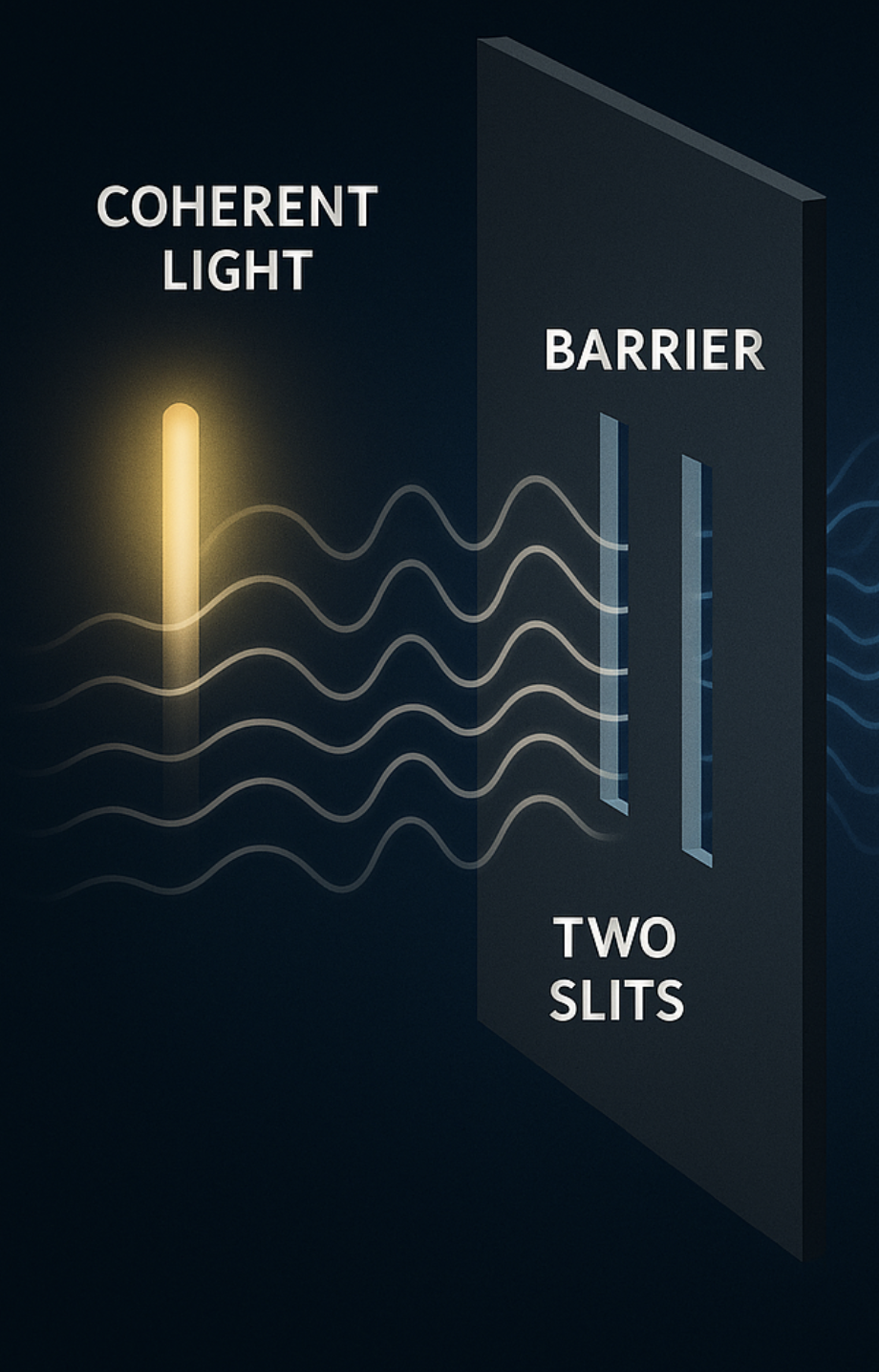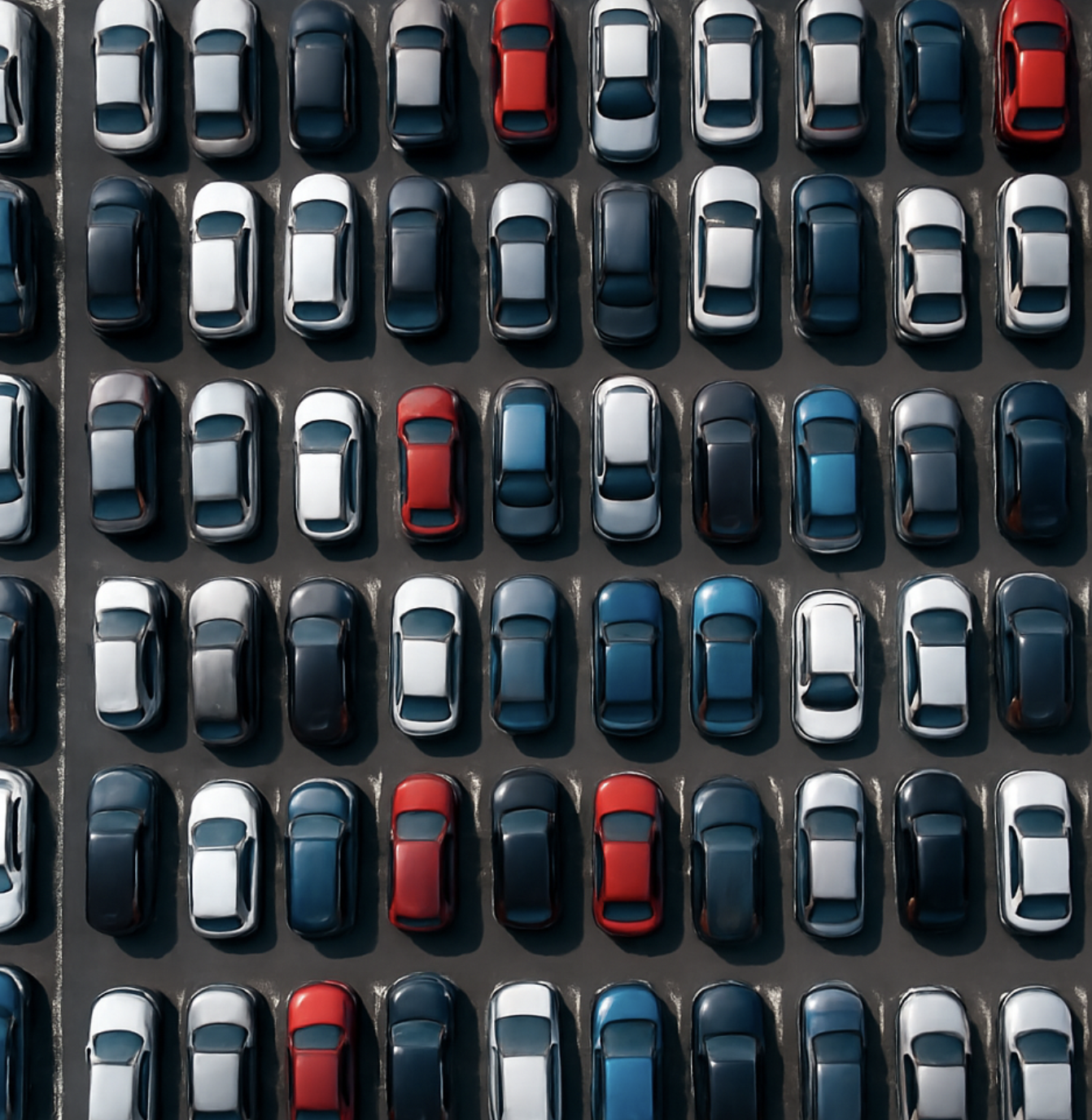Quantum Physics, Parking Spots, and the Strange Science of Luck
I used to joke that the universe had something personal against me whenever I circled a crowded parking lot for the fifth or sixth time. No matter how many times I’ve tried, I end up stuck in the farthest corner, hiking in as far as I can and knowing the grocery cart or Target bags will annoy me on the walk back out.
Meanwhile, one of my friends seems to glide into parking spaces at the very front, right by the door, every single time, as though the spot had been saving itself for him.
When I mentioned it to him he was all “I really don’t know why you always complain about parking, it’s so easy.”
He was also excellent at playing Blackjack at casinos, and I could never get the hang of it.
At some point, I started wondering whether there was more to this than just coincidence. Why do some people seem charmed to the easy route in life while others feel perpetually stuck in life’s long walk across the damn parking lot?
Is luck a real force, or just another story we tell ourselves?
And then, doom-scrolling late last night, I came across a post shouting: “Quantum physics proves luck isn’t random.”
It was bold, it was clickbaity, and it made me pause, and click. So, well done, it worked.
Could the bizarre rules of the subatomic world, the exact same ones that make particles behave differently when observed, have anything to do with who gets the good parking spots of life?
And how can I possibly make myself benefit from it.
What Quantum Physics Actually Says
Before we leap too far into metaphysics, let’s untangle the actual physics going on behind the scenes.
At the quantum level, particles like electrons don’t behave like neat little billiard balls no matter how much we’d like them to.
They act like waves and particles at once, existing in fuzzy probabilities until measured, oddly enough.
In the classic double-slit experiment I’ve talked about ad nauseam (if you missed it, check it out here When the Future Rewrites the Past: The Quantum Eraser Paradox), electrons are fired at a barrier with two slits.
Instead of forming two clear lines on the screen behind (as we’d expect from bullets), they form a super strange interference pattern, like ripples in water, suggesting each electron is somehow going through both slits at once.
…like what?
But here’s the kicker that makes it all even spicier: when scientists set up a detector to watch which slit the electrons go through, the interference vanishes.
AKA the electrons suddenly behave like little marbles, choosing one slit or the other.
For some super unexplained reason, observation seems to change the outcome.
This is where things get weird, noticing, measuring, or “expecting” appears to collapse probabilities into one result.
Physicists call this wavefunction collapse, philosophers call it nightmare fuel, I call it the magic of the universe.
Sidebar for those who are still reading:
Observer Effect (Quantum): The act of measurement can actually alter the outcome of a system.
Observer Effect (Life): Your attention alters what you notice, amplifying some possibilities and ignoring others.
Warning: One happens in labs with electrons, the other happens in your brain. Don’t confuse the two, but try to notice the rhyme.
The Meme Claim: Luck Isn’t Random
The viral post traced its argument like this:
Expectations shape probability, so if an observer expects one result, particles lean toward it.
Confidence filters opportunities, and the brain highlights what matches beliefs, like a searchlight ignoring the rest and honing in on one thing.
Belief in luck changes behavior, people who believe they’re lucky act differently, spot opportunities faster, close more deals, and somehow get more parking spots (okay, I’m done, I swear).
Therefore, luck is not random, it’s a blend of physical law, brain wiring, and focus.
It meme sounds intoxicating, right? Almost like a magical scientific spell that has all the answers in life and all you need to do is embrace it and life becomes anything you want it to be.
But let’s slow down for a moment, because if something is too good to be true…
Where the Physics Stops
So after doing some digging on the good ole interwebs, I found that quantum experiments have never before proven that human intention alone collapses wavefunctions outside the lab.
Your belief in a parking spot isn’t shooting photons into alternate universes (that we know of anyway).
It seems as though electrons don’t care whether you’re an optimist or a pessimist.
That’s the danger of the meme: it stretches a genuine scientific principle (observer effect) into a mystical catch-all.
When someone says, “Luck is quantum physics,” what they often mean is, “We don’t really understand either, so maybe they’re related.”
Still, there’s something valuable in the whole idea, because while physics might not prove luck is actually changable, psychology does.
Where the Brain Takes Over
Here’s what we know now about the psychology of luck:
Attention absolutely shapes perception. If you believe you’re unlucky, your brain filters out subtle signals of opportunity, like the tiny signs someone is about to leave their parking spot right out front of Target (okay, I lied, I’m back to the parking thing, sorry). If you believe you’re lucky, you’re brain seems more primed to notice those little signals and cues.
Confidence also changes risk tolerance for a lot of people. Lucky-feeling people take more small chances that can really add up to bigger and bigger results. Lucky people might ask for introductions, apply for jobs, or turn down side streets others wouldn’t.
More rolls of the dice = more chances of winning.
And we also can forget that expectation rewires our actual response.
Neuroscience shows that if you’re expecting something good to happen, it can lower your stress, sharpen memory, and increase creativity, which are all factors that tilt outcomes in your favor.
In other words, luck often isn’t magic (even if we want to believe it is), it’s more like subtle pattern recognition and braveness dressed up as fate.
For example, that Zurich’s study that was referenced in the meme, that “Luck Study” was basically when psychologists in Zurich ran experiments showing that people who described themselves as “lucky” were more likely to notice money on the ground, connect dots in conversations, and seize random opportunities.
But if you look into the why it was just because their minds weren’t scanning for disaster in every day life, they were scanning for gifts.
The Pseudo-Quantum Edge I Love
Still, researchers have played with the idea of consciousness influencing quantum systems, as I would too if I was one of them.
Some experiments with quantum random number generators asked participants to “will” a machine toward certain outcomes. Results have been inconclusive, messy, and extremely controversial to say the least.
The scientific consensus leans more toward noise, and farther away from proof with almost every study.
But even if thought can’t bend electrons to your will by sheer force, it can bend you. And it seems like that’s enough to change your little corner of reality.
Tips for Everyday Luck
It seems like a few things I am going to take from this research is that it’s good to expect good things to happen, but not to demand them in my mind. Anticipation seems to opens your senses, but desperation might just narrow them.
Also, maybe I should look twice or a bit harder next time I’m looking for parking. Most people glance and move on (me, I’m most people, my husband says I notice nothing). The “lucky” ones are clearly scanning until they spot the subtle signal that I miss.
I also think there’s something here about persistence and grit that is often overlooked, something like more attempts create more intersections with chance and opportunity.
Learning from mistakes might go hand in hand with persistence, because even bad rolls become data your brain can file away for later, training you for that next throw.
Belief isn’t magic, but it also primes your brain chemistry to keep trying.
Luck is wasted on those too tired, too bitter, or too distracted to accept it, try things as they come your way.
The Quantum Metaphor Still Matters
Even if quantum physics doesn’t literally make you lucky, it gifts us enough hope and grounding into real life opportunities. At any given moment, life is a crazy pile of possibilities, of those wavefunctions waiting to collapse into reality.
Which ones become your reality depends on where you shine your focus and how well you’re paying attention.
It’s not the parking lot that changes, it’s you who does.
So no, physics doesn’t prove luck isn’t random, but the meme touched a nerve in me because it reflects a deeper truth: when you expect fortune, your brain acts like a filter, aligning your actions with outcomes that feel improbable to others.
Luck, in the end, isn’t handed down from the stars or written in quantum equations as much as we want it to be. It’s cultivated in the sharpness of your attention, the openness of your mind, and the persistence of your steps across that damn parking lot.
In case you’re thirsty for more luck information: https://pmc.ncbi.nlm.nih.gov/articles/PMC12119991/
Related Reads You Might Enjoy:
Feeling Worthless? Here’s Why the Odds of You Existing Are the Most Beautiful Miracle
Quantum Time Control: How Scientists Are Learning to Rewind Reality
Cosmic Alchemy: How Magnetar Flares Scatter Gold Across the Universe
Through the Glass of Light: Microsoft’s Vision of Holographic Teleportation
The Invisible Symphony: How the Universe Flickers Through Our Lives Without Us Knowing

